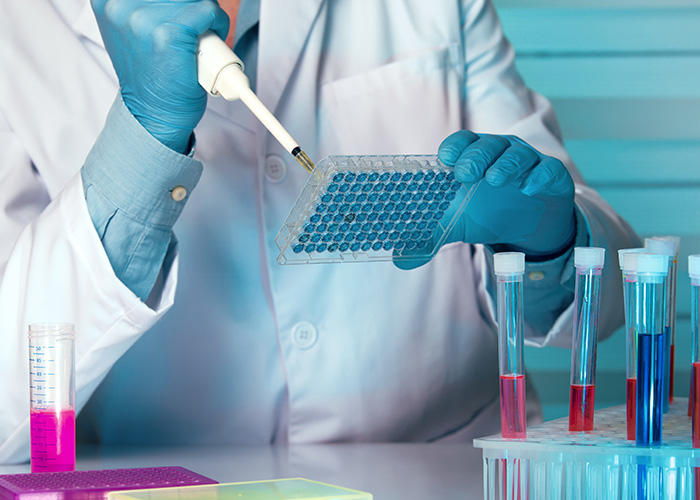Immune checkpoints are regulators to enhance or moderate immune responses. Immune checkpoint mechanisms are often activated to suppress the nascent anti-tumor immune response, which leads to the development of several immune checkpoint inhibitors, such as antibodies, peptides, and small molecular drugs for cancer therapy. Combined with broad technological expertise and the latest instrumentation, Creative Biolabs is dedicated to offering a wide range of immune checkpoint development services, including antibodies, proteins, peptides, assays, small molecular drugs, and more. Our experienced team can also save you time by providing customer service to meet your specifications.
Building upon deeply understanding of the signaling pathways and implications of immune checkpoint molecules, Creative Biolabs has developed a full-scale platform to develop immune checkpoint-associated antibodies, proteins, peptides, assays, small molecular drugs, etc. to meet different demands from our global customers.

Creative Biolabs provides high-quality development services of immune checkpoint proteins, such as protein labeling and stable cell line development.

Creative Biolabs provides comprehensive checkpoint antibody development, characterization and engineering services, including monoclonal antibody, polyclonal antibody, antibody fragment.

Creative Biolabs provides immune checkpoint targeted peptide development services, such as peptide design and peptide selection.

Creative Biolabs provides immune checkpoint targeted small molecular drug development services to promote the advance of tumor immunotherapy.

Creative Biolabs provides biomarker development services for immune checkpoint inhibitor (ICI) to help discover new ICIs and advance the immunotherapy.

Creative Biolabs provides a series of immune checkpoint assays with high quality and accuracy to address different demands of our global customers.

Creative Biolabs provides full-scale preclinical research services for immune checkpoint drugs to save your time and cost.
Immune checkpoint is a kind of molecule in the immune system that either enhances (co-stimulatory molecules) or inhibits (co-inhibitory molecules) immune responses. Therefore, immune checkpoints can be divided into two kinds of signals:
Co-stimulatory checkpoints deliver positive signals to T cells following their binding to ligands and receptors on antigen-presenting cells (APCs). They can stimulate immune responses, including but not limited to CD27, CD40, OX40, GITR, 4-1BB, CD28, and ICOS.
Co-inhibitory checkpoints deliver negative signals to T cells upon interaction with their counterparts on the APCs. They can inhibit immune responses, including PD1, PD-L1, CTLA-4, VISTA, CD155/TIGIT, TIM-3, and more. The upregulation of co-inhibitory immune checkpoints hampers the immune response toward tumor cells and facilitates the tumor cells' ability to evade immunosurveillance.
Physiologically, co-stimulatory and co-inhibitory immune checkpoints and other molecules function to keep a balance of the immune system. In cancer, the inhibitory immune checkpoints are often overexpressed on tumor cells or non-transformed cells within the tumor microenvironment and hamper the immune system to mount an effective anti-tumor response. Therefore, immune checkpoint blockade (ICB) is one of the current most promising approaches for activating therapeutic antitumor immunity and circumventing the immune resistance exhibited by many tumors.
Known for our deeply-rooted expertise and abundant experience in immunotherapy, Creative Biolabs is confident in offering high-quality immune checkpoint development services to accelerate your project of immunotherapeutics. If you want to get more information, please feel free to contact us.
All listed customized services & products are for research use only, not intended for pharmaceutical, diagnostic, therapeutic, or any in vivo human use.
USA
Tel:
Fax:
Email:
Copyright © 2026 Creative Biolabs. All Rights Reserved.